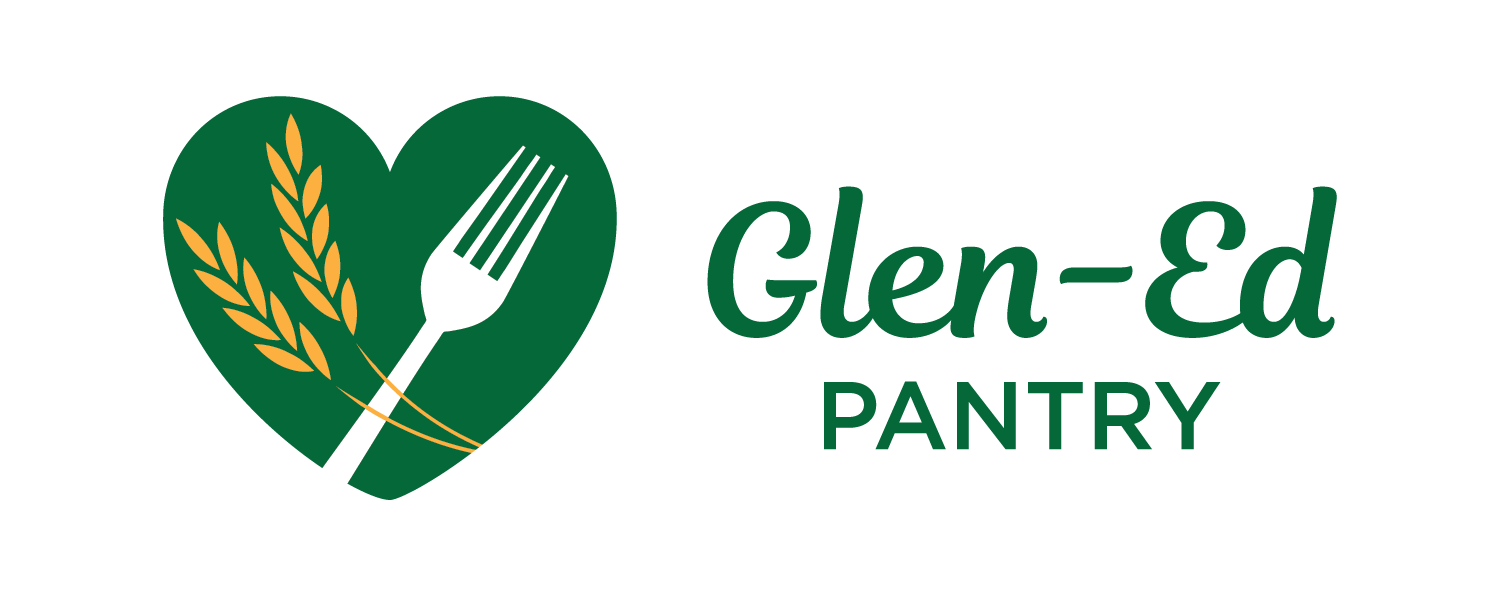Your $10 Goes Further Than You Think
When most people think about supporting a food pantry, they picture donating bags of canned goods, boxes of pasta, or jars of peanut butter. And honestly? We love that. These contributions are meaningful, appreciated, and essential to our work.
But what many don’t realize is that a simple $10 donation—the cost of one lunch out or a couple of fancy coffees—can go even further in fighting hunger. Thanks to our incredible community of donors, over 500 volunteers annually, and strong local partnerships, we’re able to stretch every dollar to make a real, measurable impact. Here's how:
💸 The Power of Bulk Buying
Let’s break it down. When you head to the store with $10, you might walk away with:
A box of cereal
A can or two of vegetables
A jar of pasta sauce
That’s maybe three or four items.
But when Glen-Ed Pantry uses that same $10, we can:
Purchase 35–50 pounds of food through wholesale and bulk partners
Buy essential fresh foods like milk, eggs, and produce that families need but aren’t often donated
Provide nutritional variety and culturally appropriate meals to meet the diverse needs of the 300+ families we serve each month
Recover quality surplus items from local grocers and farms—ensuring nothing goes to waste
Thanks to our ability to purchase in volume and maintain low operating costs, your financial gift goes further and supports more neighbors in need than most retail food donations alone could.
🛒 Food Donations vs. Financial Support: Why Both Matter
We are deeply grateful for the canned food drives, church collections, and school efforts that fill our bins every week. That generosity helps us restock quickly and provides the non-perishable backbone of our pantry.
Financial donations allow us to be flexible, strategic, and responsive—especially when the unexpected happens.
Cash donations help us:
Fill in the gaps when key items are missing—like peanut butter, cooking oil, or shelf-stable milk
Purchase hygiene essentials like toilet paper, baby wipes, and diapers—items that aren’t covered by food stamps but are vital to families
Respond to seasonal needs, like offering more fresh foods during the summer months when kids are home from school and families have increased grocery needs
Avoid food waste, since we can buy only what we know will be used and store it safely
It also means we’re able to serve our community with dignity—offering not just food, but real choice and variety. That’s something every family deserves.
🙌 A Little Goes a Long Way
To put it into perspective, here’s what your support can provide:
$10 = Up to 50 lbs of food—enough for multiple meals
$25 = 10+ full meals for a local family
$50 = Groceries for a full week, including fresh and frozen items
$100 = Replenishes key staples like pasta, rice, beans, peanut butter, and canned fruit for dozens of households
These aren’t just numbers—they’re lifelines. They represent:
A child heading to school with a full belly
A senior who doesn’t have to skip dinner to afford medication
A parent who can prepare a warm meal without worrying what’s left in the cupboard
Every dollar is hope, relief, and nourishment—wrapped into one.
🔄 Make a Bigger Impact with Monthly Giving
Want your gift to go even further? Consider becoming a monthly donor.
Just $10 a month—about the price of two coffees—helps us provide ongoing support and stability to the more than 300 families we serve each month across:
Edwardsville
Glen Carbon
Hamel
Worden
Midway
Moro
Dorsey
Prairietown
When you give monthly, you help us plan ahead, stock smartly, and respond quickly when needs arise. It's one of the most effective ways to support hunger relief year-round.
👉 Click here to set up a recurring donation
At the Glen-Ed Pantry, we’re not backed by national brands—we’re sustained by people like you. Every donation, every volunteer hour, every shared post or encouraging word helps us continue our mission of serving with dignity, compassion, and respect.
